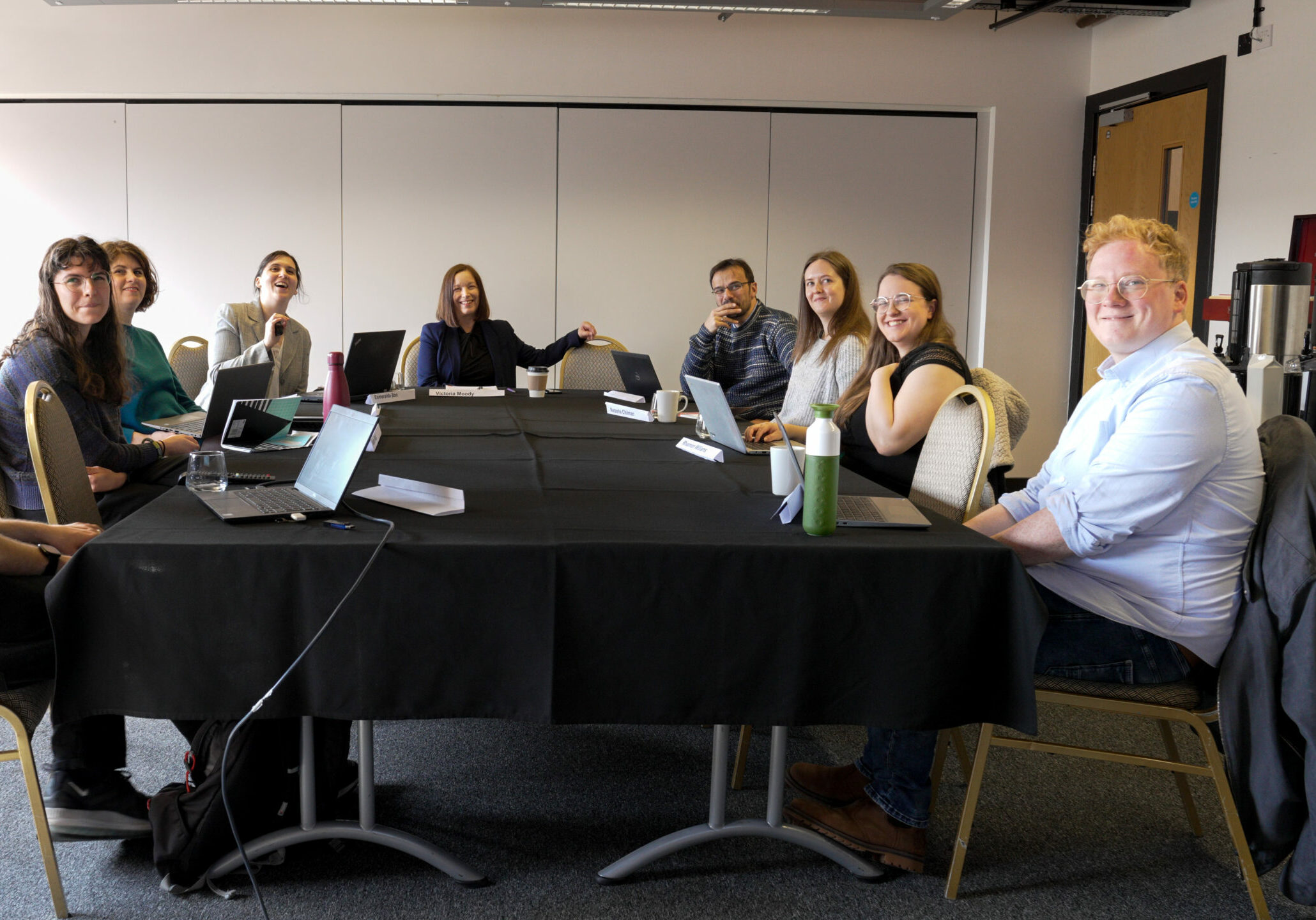Poverty in data
We’re in a relatively unprecedented period where the cost of living is rising sharply, and growing numbers of people are struggling to afford food, fuel, housing costs and more.
Understanding poverty and finding ways to reduce it have become more important than ever. Policymakers, thinktanks, charities and researchers all rely on data to focus and underpin their efforts. The UK Data Service is in a unique position to make large amounts of high quality social, economic and population data available which can support people working in this area.
On this page, we are drawing together, making connections and sharing examples of how the data in our collection is underpinning these efforts to make a difference. This forms an important part of our developing impact approach.
We will also be working with a range of partners, including our current cohort of Data Impact Fellows, to understand the many ways data available from the UK Data Service can help understand and improve the lives of those living in poverty and deprivation. This theme was also the focus of our 2024 Data Impact event, you can view the sessions and other resources from this event here.
This page will be updated regularly with new findings about Poverty in data. We will also continue to work with partners to create posts for our Data Impact blog, along with case studies. If you would like to work with us, please get in touch.
Deprivation
Measures of deprivation are usually based on a range of different factors.
For instance, the Indices of Multiple Deprivation define deprivation across multiple domains. Some measures of deprivation are directly available from the UK Data Service at postcode level.
Tej Nathwani introduced a new area-based measure of deprivation created by the Higer Education Statistics Agency (HESA) in this Data Impact blog post.
Poverty
There is no official measure of poverty in the UK, although Households Below Average Income data measures “equivalised disposable income that falls below 60% of the national median.”
To better understand the nature of poverty and support drives to reduce it, the Social Metrics Commission has devised a new approach to measuring poverty.
The commission’s measure draws on data from Understanding Society, Family Resources Survey (FRS), and Households Below Average Income (HBAI). The commission wanted the approach to be transparent and replicable and so made their code freely available.
We worked with the Social Metrics Commission to explore their novel measures in a case study, where we explored the impact this measure was already having, including the UK Government committing to producing experimental statistics. We also reviewed definitions of poverty and other approaches to measuring it on our Data Impact blog.
Donald Hirsch, who has used the English Housing Survey as part of his work with the Joseph Rowntree Foundation on the Minimum Income Standard, identified 5 things that official inflation figures don’t tell you about the minimum cost of living (written before the current cost-of-living crisis really hit). Donald also spoke at the Early Career Research workshop as part of our Data Impact event, you can watch his talk here.
As the UK Data Service impact team, we have also been looking at the way in which data is informing poverty discussion and research on an ongoing basis. This includes Data Impact blog posts providing summaries of recent reports, headlines and findings in the area (summer 2023, autumn 2023, spring 2024) and looking at strategies on data policy.
In the UK, a national minimum wage was introduced in 1999. After campaigning about the level of income needed to cover the cost of living by the Living Wage Foundation (LWF), the national minimum wage rate applying to those 25 and over was rebadged as the National Living Wage (NLW) and upgraded by the UK Government in 2016 (although not to the level the LWF had assessed as necessary).
The Low Pay Commission commissioned the Institute for Employment to assess the impact of the minimum wage and NLW on employment and hours. This piece of work drew on data from the Annual Survey of Hours and Earnings and the longitudinal Labour Force Survey.
One of the researchers was James Cockett, one of our Data Impact Fellows. James shared with us his experiences of presenting interim findings to the Low Pay Commission as well as introducing the research he and colleagues undertook. You can also read a case study describing the research and its impact in greater detail.
Other impactful research has used data from the UK Data Service collection to evaluate how the NLW has benefited workers, including Agnes Norris Keiller from the Institute for Fiscal Studies whose research used the Family Resources Survey and Households Below Average Income. The Resolution Foundation used data from the Family Expenditure Survey and New Earnings Survey Panel Data to assess the policy effects of the NLW.
The Living Wage Foundation also recognises how precarious life can be as part of the ‘gig economy’ and launched ‘Living Hours’ in 2019, an accreditation scheme designed to provide workers with secure hours, predictable shifts and working contracts which reflect actual hours worked. By mid-2022, 100 employers had committed to the scheme.
Research underpinning this campaign used data from the Labour Force Survey and the Family Resources Survey. More detail about this research and its impact can be found in a post on our Data Impact blog and in a case study.
Skeena Williamson and Lucinda Allen from the Health Foundation used data from the Family Resources Survey and Households Below Average Income to understand rates of poverty amongst people working in the residential care sector.
Aman Navani from the Work Foundation presented findings of the UK Insecure Work Index 2024. They estimate that 21.4% of UK workers experience sever insecurity and that women are 2.3 times more likely than me to experience severely insecure work.
Also looking at the role of gender and work, Bozena Wielgoszewska, one of previous our Data Impact Fellows, shared on her recent work looking at the gender furlough gap, and the question of why did women stop working at higher rates than men during the COVID-19 pandemic.
Poverty and deprivation do not just affect individuals, but also families, dependents and households.
The UK Parliament Work and Pensions Committee recently conducted a multi-part inquiry into children in poverty, looking initially at definitions and measurement of child poverty, its impacts and how the Department for Work and Pensions should work with other parts of government to reduce the numbers of children living in poverty.
We reviewed the submissions to the inquiry and discovered that many directly referenced data within the UK Data Service collection or referenced research which had used that data. The UK government responded favourably towards a number of recommendations from the inquiry.
In other research, Helen Norman, Collette Fagan and Mark Elliott used the Millennium Cohort Study to investigate the conditions associated with parental involvement with children. Their findings for policy included a recommendation to reform shared parental leave which was considered by the UK Government.
Liming Li, British Academy Postdoctoral Fellow at King’s College London, looked at the links between welfare benefits, single mothers and the impact on children’s mental health.
Additionally, Melanie Bartley used the National Child Development Study to help understand whether childhood poverty affects respiratory health in mid-life.
Housing and homelessness are issues that make the news, discussed in people’s daily lives and debated in parliament on an almost daily basis both here in the UK and abroad.
Having data to back up discourse and debate to go alongside lived experience is vital when it comes to research, policy development and implementation. It also enables government agencies, charities and other organisations to get help and support to the areas and people that need it most.
A key piece of work in this area is the Homelessness Monitor and Homelessness Project. Key data from the UK Data Service collection such as the Labour Force Survey, Understanding Society and the English Housing Survey helped to develop new and more effective ways of measuring and monitoring homelessness. This work has had significant impact on policy in England, Scotland and Wales.
One of our previous Data Impact Fellows, James Cockett, discussed the role of outward migration of young people in this Data Impact blog post. He highlights the need for work at all levels of government, especially at a local level, to help improve the UK’s geographical distribution of economic opportunity.
Linked to the theme of migration, Emma Nicole Stewart presented work from the Onward Migration project in a case study. She highlighted the need for policy changes on many areas related to refugees and asylum seekers, all of which are still pressing issues several years on from this work.
In a link to another of our impact themes, Mental health and wellbeing in data, Amy Clair and Emma Baker, from the University of Adelaide, looked at the impact of cold homes on people’s mental health. They found that lone parents, those with a longstanding illness, the unemployed and economically inactive are more at risk from illness due to cold homes.
Ricky Kanabar and Paul Gregg presented research on home ownership and wealth inequality in Great Britain in this Data Impact blog post. They found that inequality in offspring is related to access to home ownership and housing wealth.
Poverty and deprivation affect different parts of society in different ways and with different intensity. Researchers have been able to use data from the UK Data Service collection to better understand these effects.
The effects of economic isolation on women’s employment and well-being was an area Lisa Bucker examined, using data from the 2001 Census.
Steven Jiraj used ethnicity and related data from the 2011 Census to develop understanding of the contemporary patterning of ethnic inequalities.
Martin Culliney used data from the British Household Panel Survey to understand the rural pay penalty.
Ceri Hughes and Peter Kenway used the Family Resources Survey to analyse migrants’ experiences of poverty and to compare them with the experiences of UK-born people.
On our Data Impact blog, Alasdair Rae used quantitative and qualitative data, including the stories of the people affected, to explore the reality of using public transport to access work from poorer areas of the UK. Some useful visualisations give a flavour of how difficult increasing commuting by public transport can be.
In a recent Data Impact blog post Franco Bonomi Bezzo and Anne-Marie Jeannet discussed the role voluntary and civic organisations have in deprived communities.
Factors which can play into poverty and deprivation are socioeconomic class and social mobility.
Daniel Laurison and Sam Friedman undertook research into the ‘class ceiling’ and how privilege can affect career outcomes. Their work, which used the Labour Force Survey, identified a ‘class pay gap’ and identified ways class inequalities are reproduced. Their research offered evidenced ideas for supporting meaningful change.
Research conducted by one of our first Data Impact Fellows, Marii Paskov, identified challenges surrounding the use of both survey and administrative data in undertaking social mobility research.
Issues around social mobility start early. Vikki Boliver used data from the National Child Development Study to help understand whether comprehensive schools reduce social mobility. For an even earlier life stage, Laura J Brown and Rebecca Sear also used the Millennium Cohort Study in research to analyse whether socioeconomic status or environmental quality is a stronger predictor of breastfeeding.
Inequality and lack of inclusion can be factors in poverty and deprivation.
The Equalities and Human Rights Commission is the statutory body reporting on how well people in Britain can live free from discrimination or abuses of their human rights. Their reports on ‘Is Britain Fairer?’ draw heavily on data in the UK Data Service collection and set the scene for a understanding of the state of Britain, including reporting on work and living standards.
Andrea Finney and Elaine Kempson assessed financial inclusion in the UK, using data from the Family Resources Survey.
Matthew Johnson and Elliott Johnson, from Northumbria University discussed their work looking at the Health Case for Basic Income. The found in their trials and data-driven research that Basic Income is affordable, popular and can be an impactful means of improving income and financial security.
Blanca Piera Pi-Sunyer shared about her use of the Millennium Cohort Study in her research into perceived income inequality amongst friends and its effect on mental health and interpersonal issues.
Latest Poverty in data content
Unlocking Adolescent Potential: The Power of Family Support Amidst Childhood Adversities and poverty
Nicholas Kofi Adjei, Research Associate at the University of Liverpool, discusses the relationship between family adversities across the early life course and perceived emotional support in adolescence.
Ricky Kanabar and Paul Gregg, from the University of Bath, present research on home ownership and wealth inequality in Great Britain.
Aman Navani, Analyst at the Work Foundation, presents findings from the UK Insecure Work Index 2024.
Our videos
Poverty in Data: Perspectives in Poverty
Poverty in Data: Research, policy and next steps
Data Impact Fellows
Our Data Impact Fellows scheme provides support for Early Career Researchers in the academic and charity sectors who are starting out on their data impact journey.
The scheme offers Fellows a bursary to fund impact-related activities, an opportunity to meet other Fellows to share and develop their ideas for pursuing pathways to impact, and the chance to communicate their research and impact work through our Data Impact blog.
This year our Fellows will be working in one or more of the areas of poverty, deprivation, cost-of-living, housing or homelessness.




